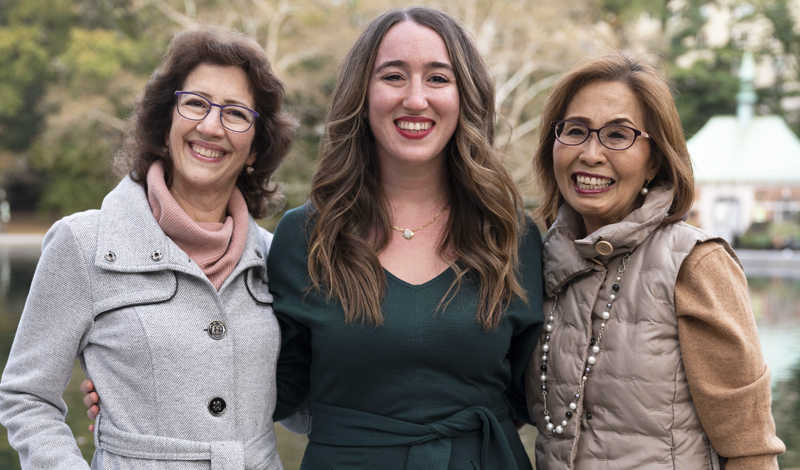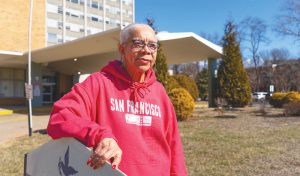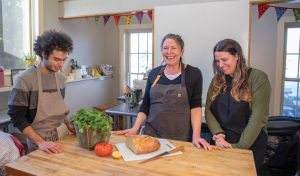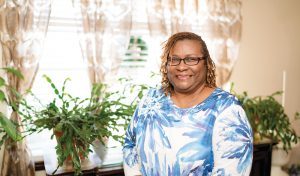by Jessica Tenny
New York
A mistake on my part, a small miscommunication, resulted in the reporter being a few minutes late to a client meeting. Convened inside the Empire State Building, this meeting was a big one for me as a 26-year-old public relations associate to be facilitating alone. While we waited, I got a call from my boss and excused myself from the room. I ducked into a nearby hallway, my heart hammering, and took the call. She had heard about my mistake. From her end of the line came the screaming: I was incompetent, untrustworthy, almost certainly fired. She hung up.
When I returned, the reporter was waiting with the others.
“Perfect,” I heard myself say, without any expression at all. “Shall we?”
This job, under this boss, was my first. Until my debut in the working world, my life had been smooth sailing. So smooth, in fact, that my grandma was concerned.
“You’re very fortunate, Jessica. Everything seems to be coming easy for you, but challenges are important to expand your life and become stronger.”
She was referring to an abundance of praise. As the only child of my parent’s marriage, I received a lot of it, maybe too much. By primary school, I’d worked up a keen appetite for the stuff and the instinct survived into high school, leaving its stamp with a neat double column of A’s on every report card.
While my grandma fretted about the calm of the waters, I was wary of every wave, every ripple. Reservation in a teacher’s voice or an A- on an essay gave rise to a deep foreboding bordering on physical pain. I avoided that pain at all costs and reaped the harvest my senior year, in the form of eight acceptance letters from the eight colleges I had applied to. Clearly winning praise was the key to a fulfilling life and the antidote to fear.
After that meeting, my phone rang again. That would be my boss. This time she would fire me. Either that or shower me in apologies, fawning assurances, personal favors. I answered and it was my grandma. In the pedestrian traffic at the foot of the Empire State Building, I broke down in hysterical sobs. Memories of once ending up in the emergency room from severe stomach pains caused by work anxiety rushed through my head. I wondered if that would happen again now. Later at my grandma’s home, I told her everything. She looked me in the eye.
“Jessica. You need to give chanting a try.” At age 20, my grandmother moved to America from Japan and helped build the foundation of the SGI-USA. Determined to fulfill her mission of raising successors, she always encouraged me and many other young people to chant Nam-myoho-renge-kyo. Sometimes I joined in, but I was just going through the motions. Now, though, I realized I really did need to give it a go.
Chanting that night, sincerely for the first time, I felt a sense of calm, that I would find another job, that everything would be OK. When we finished, my grandma turned to me.
“Chant just a little every morning. Chant for the best outcome for you.”
I took her up on it. Within two weeks of consistent chanting, I was scouted and hired by the company of my dreams. This, after over a year of applying to other jobs, searching for my ticket out. Wow! Like magic! Of course, I hadn’t even begun to confront my karma. I hadn’t even scratched the surface.
My first review at my new job identified a few places where I was performing below industry standards. No screaming, no threats; very professional. Yet my self-doubt kicked in again, and I spiraled into a months-long depression.
My grandma encouraged me: “Nam-myoho-renge-kyo does not mean ‘I-devote-myself-to-work.’ We practice to expand our lives, to become absolutely happy! You need to take your practice to the next level.” My personal barometer for my prayers’ success, I realized, was not whether I was happy myself but whether my boss was happy with me. I began to participate in my local SGI district meetings and was astonished to encounter many others joyfully winning over problems resembling my own. I upped my daimoku and studied the encouragement of Ikeda Sensei. I began making financial offerings, a practice of appreciation that helped me cultivate my humanity. All these actions took me out of my depression and, more significantly, out of my own head.
My girlfriends were the first to notice. “What’s up? You take a yoga class, or what?”
I had been obsessing for years over work while neglecting my personal relationships. I sucked up the air with my own problems and hardly asked my friends or family how they were doing. Now I was asking; I was thinking about people who weren’t me. Soon, three of my closest friends began their practice.
My mom noticed, too, and she, too, began her practice. We became closer than ever as mother and daughter and even started vacationing together. I never imagined three generations—my grandma, my mom and I—all practicing Buddhism. Together as a family, we start every day with a text loop to sync up for morning gongyo.
My boss noticed as well. My next review was practically a celebration. It was wonderful to celebrate, but by then I knew without needing to be told that I was winning, not just in work but also as a daughter, granddaughter, friend and disciple. I felt confident and secure in my own life, rather than relying on external praise to determine my happiness.
Today, after four years of practicing Buddhism, I now work as a Public Relations Director at a financial technology company with an incredibly supportive boss and healthy work environment. While this new position comes with an even greater workload, I continue to keep my Buddhist practice and caring for myself and others at the center of my life.
Taking on SGI responsibilities when I feel overburdened with work sounds counterintuitive. But I’ve found that’s precisely the time to get involved. When I give to others, I give to myself. Financial contribution is one expression of this. Offering encouragement is another. Sensei and the pioneers of my grandmother’s generation blazed the trail of kosen-rufu in America. I feel I owe it to them, and to those who have not yet had the fortune to encounter our movement, to do my part to ensure its vitality and long life.
You are reading {{ meterCount }} of {{ meterMax }} free premium articles





